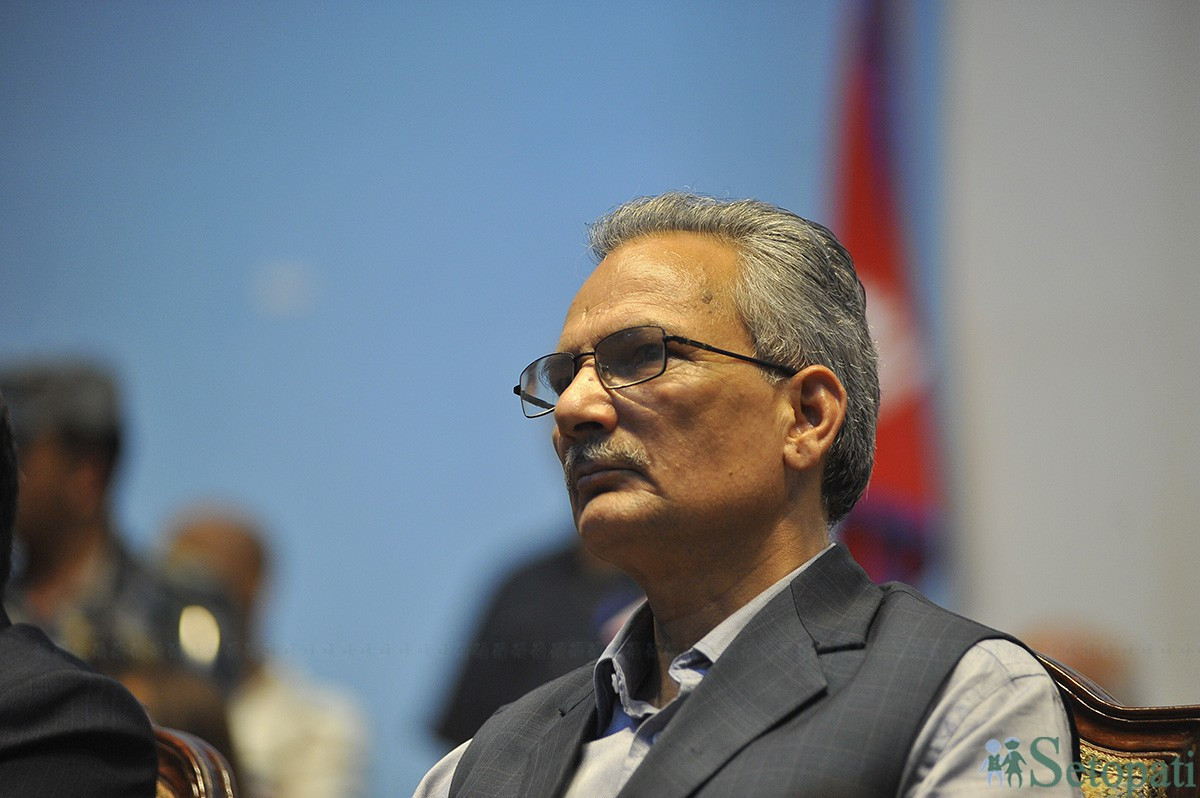Janata Samajwadi Party formed after unification of Rastriya Janata Party Nepal (RJP) and Socialist Party Nepal has decided to keep three chairmen.
A meeting of the top leaders of the two parties at the party office in Balkumari Sunday has agreed on ranking of the top leaders.
The party has decided to keep three chairmen including Baburam Bhattarai of Socialist as federal council chairman, and Mahantha Thakur of RJP and Upendra Yadav of Socialist as central council chairmen, according to a RJP leader.
Bhattarai will be the top ranked leader followed by Thakur and then Yadav.
The united party will have five office-bearers. "The party will have three chairmen. Ashok Rai will be ranked fourth and Rajendra Mahato fifth," the leader added.
The party will go to the Election Commission later Sunday for registration. "We are preparing to go to the Election Commission for registration with three chairmen, five office-bearers and 51-strong central committee," the leader stated. "We are preparing to only submit the name of office-bearers to the Election Commission now."
The leader revealed that the leaders are now putting the agreement in writing.
The united party was struggling to agree on the issue of positions and sharing of power.
Socialist Party leader Upendra Yadav had earlier proposed himself as the powerful chairman of the central committee, and Mahantha Thakur and Baburam Bhattarai for the ceremonial positions of party coordinator and federal council chairman.
RJP rejected the proposal outright and proposed Thakur as the central committee chairman and Bhattarai as the chairman of federal council instead.
RJP leaders accused that Yadav has started to show apathy toward unification after the RJP sent the proposal.
RJP and Socialist Party Nepal had hastily announced unification late in the night on April 22 to prevent split in the latter. Leaders from both RJP and Socialist Party feared that Yadav does not need party unification after the hastily announced unification on April 22 served the purpose of saving his party from split.
RJP is a party formed after unification of six different parties run collectively by six leaders who take turn as presidium coordinator while Yadav has been running Socialist Party singlehandedly even after unification with Bhattarai-led Naya Shakti Party Nepal.
The 45-day deadline for submission of the list of signature of the central committee members of both the parties, and statute and manifesto of the united party to the Election Commission for formal recognition of the unification expires on Monday. New process for unification will have to be started if the deadline were not met.
The two parties had hastily announced unification late night on April 22 to prevent split in the Socialist Party abetted by Prime Minister (PM) KP Sharma Oli.
The government on April 20 had brought an ordinance allowing splitting of a party with support of 40 percent in either the parliamentary party or the central committee. The act about political parties requires support of 40 percent in both the parliamentary party and the central committee to split any political party.
Seven lawmakers of Socialist had prepared to split the party capitalizing on the ordinance that made splitting of parties easier. The two parties had hastily announced unification to thwart that.
The united party was to use the flag of Socialist Party and election symbol of RJP, umbrella. Mahantha Thakur was to be the top ranked leader for the interim.
Both the parties have 17 seats each in the House of Representatives but Resham Chaudhari of RJP, however, is suspended after being sentenced in a criminal case.
Socialist Party has 30 seats in Province 2 assembly and leads the provincial government there while RJP has 25 seats.

